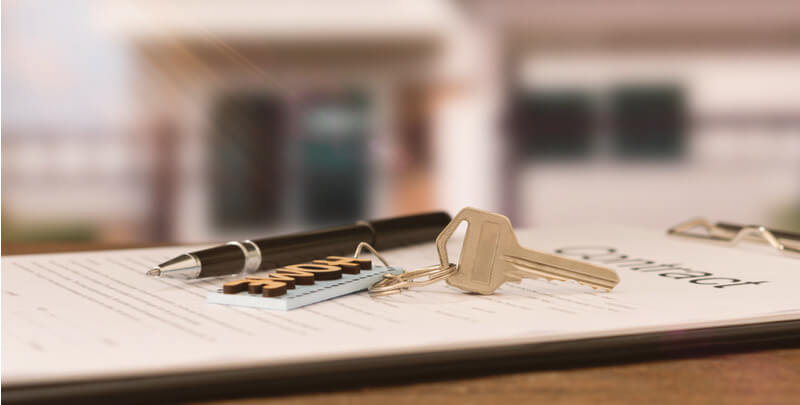Buying property in Japan as a Brit
The complete guide to buying property in Japan as a Brit, including the latest Japanese property prices.

Japan’s deep history and rich culture have been a subject of fascination for foreigners for centuries. Today’s Japan serves up plenty of culture, an incredibly safe society, excellent food and the right infrastructure for successfully running a business. As such, it’s no wonder that so many expats choose to move to the Asian island.
Unfortunately, Japan isn’t always the most cost-effective place to live, especially in popular expat cities like Tokyo, Kyoto or Osaka. Rent for a one bedroom apartment in central Tokyo averages around 130,428.57 ¥, a rate that will require a pretty decent salary to support. If you’re willing to try life outside of the major cities in Japan’s beautiful suburbs and countryside, you’ll find your rent is much more manageable, and you’ll love the quiet way of life outside of the bustling business hubs.
Whether you’re moving to Japan for work or just to enjoy Japanese culture, one of the biggest hurdles can be finding a place to live. This guide will talk you through everything you need to know as you begin your rental search.
If you’re renting in Japan, you’ll probably end up paying a broker’s fee, even if you find your new home online. It’s fairly uncommon for apartment owners or holding companies to rent their places directly, so setting out with an agent up front can save you time trying to find the right space for your needs. That being said, not all brokers will speak English, but you can reach out to the Bilingual Brokerage Assistance Service to ensure both you and your agent are on the same page.
If you’re trying to find an apartment on your own, it’s a good idea to learn some basic terms in Japanese. Some good ones to keep in mind include:
Most long term rental apartments in Japan will come unfurnished, with a couple of notable exceptions. Gaijin houses, for example, tend to come with furnished rooms. Gaijin houses are like co-living spaces; a series of smaller studio apartments with shared facilities, like kitchens and common spaces. Gaijin houses are popular among expats and students.
Additionally, some buildings are geared towards corporate rentals. As such, if your company is providing your accommodation you’ll probably find yourself in a pre-furnished apartment.
Yes. Most landlords will expect you to negotiate the rent and you may find there’s some wiggle room. You may also be able to negotiate with your broker for a lower fee; make sure you’re asking directly for what you want, and you could land a sweet deal on your new apartment.
The simple answer is yes, but it will certainly be difficult. Most landlords in long-term rentals will require proof of income before allowing you to move in. More importantly, you’ll need to prove you have the right to live in Japan, and the most common forms of visas are work visas and working holiday visas. So, while it’s technically possible to get an apartment without a job, you’re sure to have a pretty hard time.
Tenants will have various rights depending on their exact rental agreement, but for the most part they’re fairly well protected under Japanese law. Tenants can’t be removed without reason and can’t break the lease without notice. Landlords don’t have the right to enter the apartment and technically can’t hike the rent unfairly.
Despite those protections, many landlords do try to take advantage of their tenants if they’re not familiar with the law. It’s possible to hire a lawyer or go to an organization, like the Shinagawa Tenant-Lessee's Cooperative Association, to help if you find yourself having trouble or in the midst of a dispute.
As is the case anywhere, tenants are generally expected to respect the space. No loud parties, no redecorating and no breaking anything in the apartment are all givens, but there are some other cultural things to keep in mind as well. For instance, walking around your apartment with shoes on may raise your landlord’s eyebrow if they catch you doing it. It’s also a good idea to adhere to Japanese custom in general when dealing with your landlord. For example, don’t forget to offer them tea when they come over, even if it’s to yell at you or raise your rent. It’s smart to get familiar with the expected Japanese customs.
In order to seal the deal, you’ll need to sign a rental agreement. These vary widely, but should include (at a minimum)
You’ll also need to submit a deposit. It’s a good idea to walk through the apartment with your landlord, take lots of pictures and know exactly what condition each room was in when you got there. If you don’t, you could find yourself out of your deposit money when the lease is over.
You may also need to pay “key money,” or reikin. In popular neighborhoods where landlords can be selective of who they rent to, reikin is a “gift,” typically of one to two months’ rent, that’s given to the landlord and is non refundable. About 50% of Japanese landlords still charge a reikin, despite the fact that it’s steadily turning into a renters market. If you see one of these in an ad, don’t worry; it’s not a scam, just annoying.
In almost all cases, renters are required to take care of all of their own utilities. That being said, some landlords may arrange them for you and wrap the price into your rent, so it’s important to read your contract thoroughly before setting up water, gas, electric, cable and wifi on your own.
Some good things to look out for before you sign your rental contract include:
Depending on your exact rental situation, you may need to move your money into a local Japanese bank account or even have cash in hand to pay your rent. If you want to save some money doing so, check out Wise to get the real exchange rate and cut down on international transfer fees.
If you’re living in a more modern building or are renting from a bigger leasing company, you may be able to pay your rent through an online portal or via direct international bank transfer instead. This information should all be listed in your rental agreement.
If you’re planning to start your search online, some of the best sites are:
Scams change constantly, but it’s a good idea to take some general precautions to make sure you don’t lose your money. Be wary of landlords who ask you to pay in cash, request unreasonably large deposits or reikins (more than two months rent), who you never meet in person, or offer to mail you the keys to the apartment instead of handing them off to you directly.
With that, you’re ready to start finding your new home. Good luck!
*Please see terms of use and product availability for your region or visit Wise fees and pricing for the most up to date pricing and fee information.
This publication is provided for general information purposes and does not constitute legal, tax or other professional advice from Wise Payments Limited or its subsidiaries and its affiliates, and it is not intended as a substitute for obtaining advice from a financial advisor or any other professional.
We make no representations, warranties or guarantees, whether expressed or implied, that the content in the publication is accurate, complete or up to date.

The complete guide to buying property in Japan as a Brit, including the latest Japanese property prices.

Thinking of starting a new life chapter in the Land of the Rising Sun? Japan’s unique mix of traditional and innovative might be just the right thing for your...

Your essential guide to importing a car from Japan to the UK, covering the costs, documents and procedures to follow.

Japan is a country with a rich history and growing economy. In certain industries, like the tech sector, booms are starting to happen. Japan is quickly...

Whether you’re bridging family traditions or a simply looking for a unique destination, a Japanese wedding experience is like no other in the world. Japanese...

Have you ever thought about moving to a new country? There are lots of reasons to consider a move abroad: work, school, moving with family or following love....